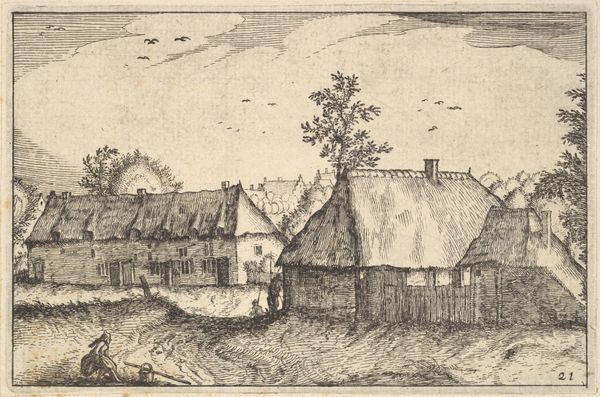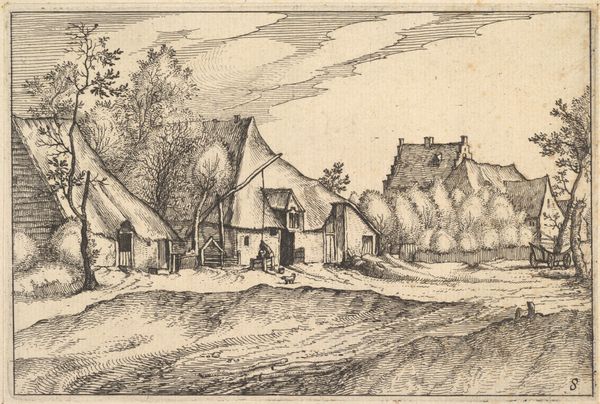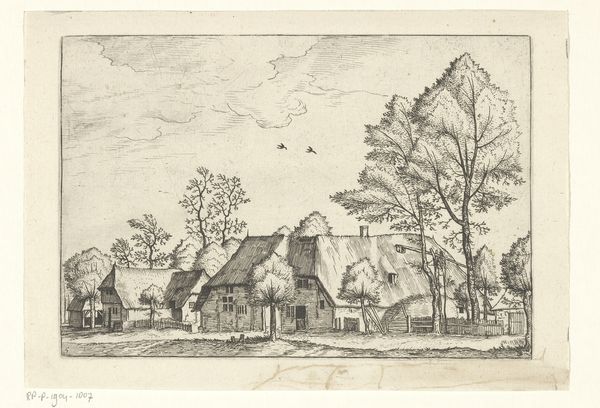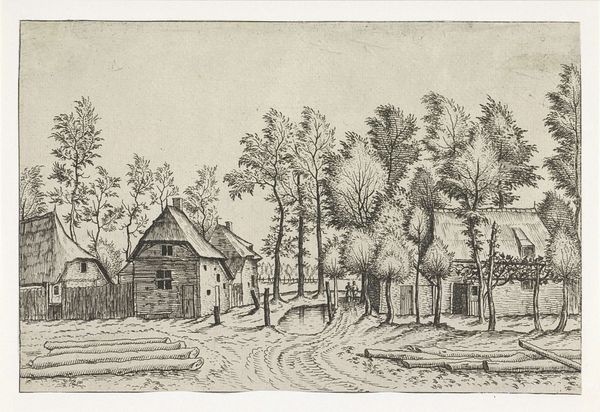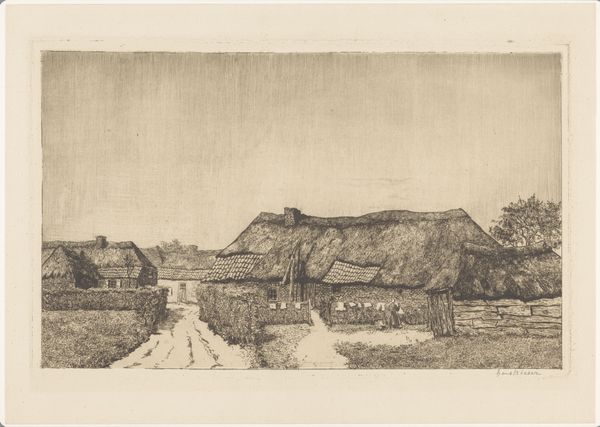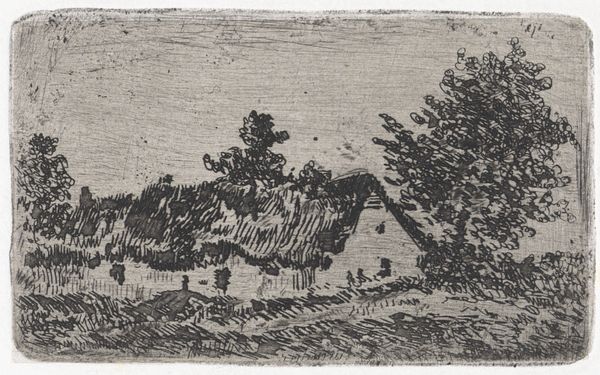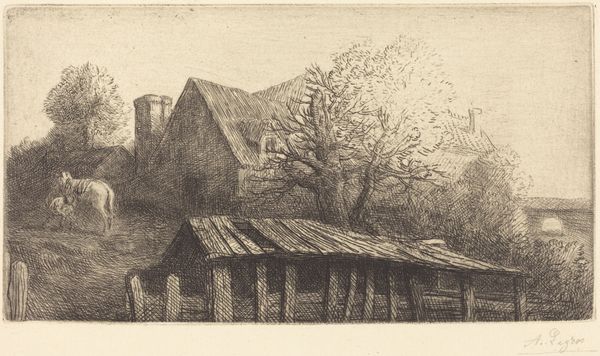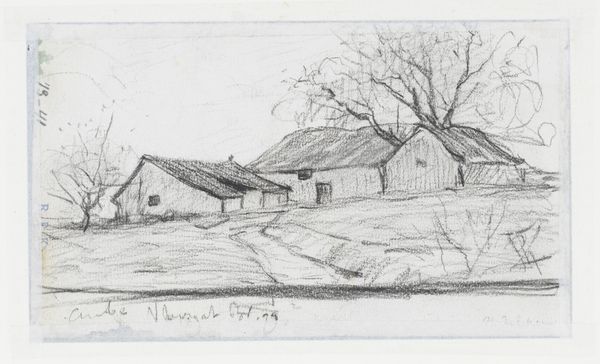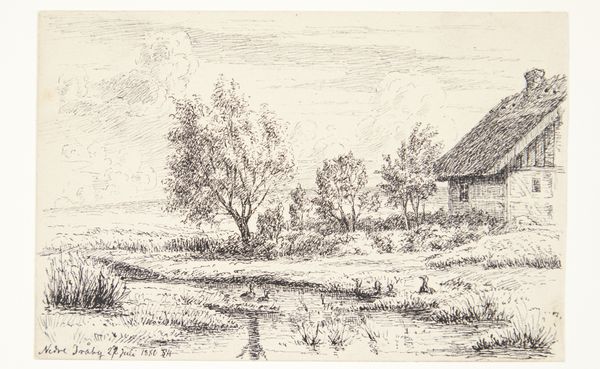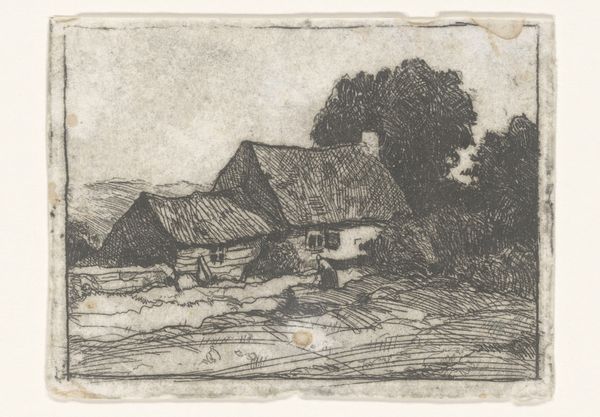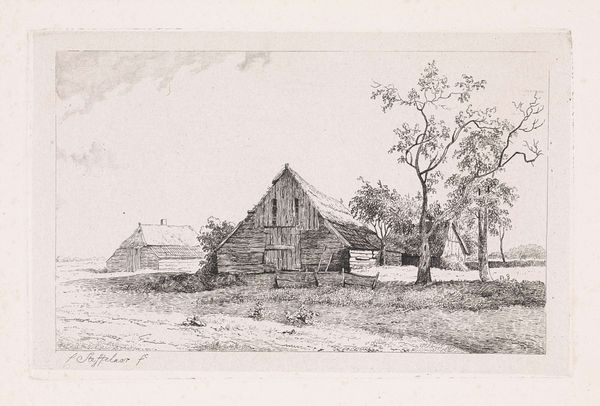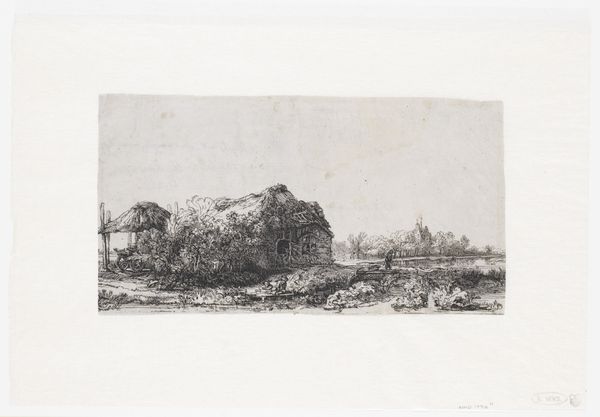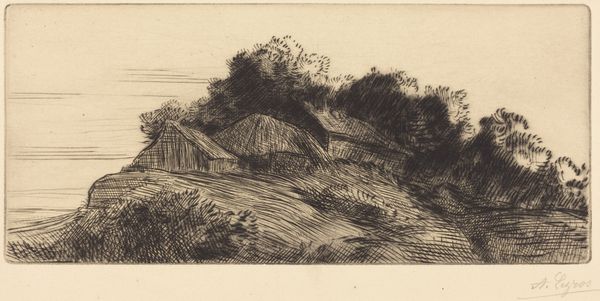
drawing, print, etching
#
drawing
# print
#
etching
#
landscape
#
history-painting
#
northern-renaissance
Dimensions: height 134 mm, width 203 mm
Copyright: Rijks Museum: Open Domain
This print of houses and a farm, by Johannes or Lucas van Doetechum, was made using etching, a printmaking process with a long and fascinating history. The technique involves coating a metal plate with a waxy, acid-resistant substance, then scratching an image into it with a sharp needle. When dipped in acid, the exposed lines are eaten away, creating grooves that hold ink. The plate is then wiped clean, and the ink transferred to paper under high pressure. The resulting print can have an incredible fineness of line. Looking closely, you can see the linear quality of the design, built up from precise hatched marks. The appeal of etching, in its early days, was that it democratized printmaking - allowing artists to easily reproduce drawings and paintings, and therefore circulate them more widely. In this case, the print preserves a valuable record of vernacular architecture. It's an unpretentious image, made accessible through the clever combination of materials and skill.
Comments
No comments
Be the first to comment and join the conversation on the ultimate creative platform.
